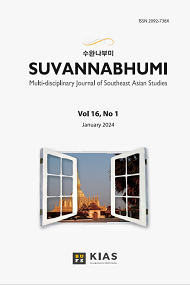부산외국어대학교 아세안연구원 주메뉴
전체메뉴

김동엽 2012-03-22 00:00
[영문논문]
The Impact of the Dutch East India Company(VOC) on the Evolution of Southeast Asian Economy
(근대초기 동남아 경제 진화에 미친 네덜란드 동인도회사의 영향)
[동아연구] 31권 1호 (2012.02)에 게재
[한글초록]
본 논문은 근대초기 동남아 경제 진화에 미친 네덜란드 동인도회사(VOC)의 영향을 고찰하였다. 특히 근대초기 자본주의 발전에 있어서 중요한 역할을 담당한 국가와 상업자본가에 초점을 맞추었다. VOC는 근대초기 가장 발달한 자본주의 제도였으며, 아시아에서는 단순히 회사로서의 역할뿐만 아니라 사실상의 국가로서 활동했다. VOC는 군사력을 동원하여 동남아 국가들을 의존적 주변부 국가나 비상업적 절대주의 국가로 전락시킴으로써 무역에 대한 역할에서 배재시켰다. VOC는 또한 동남아 토착상인들의 역할을 제한하고, 자신들의 필요를 충족시키고 지역민들과 네덜란드인을 연결하는 역할에 중국인들을 적극 활용하였다. 이후 중국인은 동남아에서 주요한 상업자본가이자 부유한 중산층으로 부상했다. 이러한 상황은 동남아에서 상업자본주의 발전에 중요한 역할을 담당한 국가와 토착 상인계층 간의 건설적인 관계를 수립할 수 있는 기회를 박탈하였고, 이는 이후 동남아 경제가 세계경제체제에서 더욱 주변화 되는 계기가 되었다.
[Abstract]
This article is to shed light on the impact of the Dutch East India Company(VOC) on the evolution of the Southeast Asian economy in the early modern era. It specifically focused on the state and merchant capitalists that played an important role in the capitalist development of the time. The VOC was said to be the most advanced capitalist institution of the time. It was not only a corporate entity but also a de facto state in Asia. With its military power the VOC disarmed the role of Southeast Asian states in trade by deteriorating them into either a dependent peripheral state or a non-commercial absolute state. The VOC also limited the commercial role of the indigenous merchants. Instead, the VOC heavily relied on the Chinese to supplement its needs and to connect the local people with the Dutch. The Chinese emerged as the major merchant capitalists and the wealthy middle class in Southeast Asia ever since. The opportunity to build a constructive relationship between the state and indigenous merchant class in Southeast Asia was wasted under such circumstance. And it caused to push further the Southeast Asian economy to the periphery of the world economic system afterwards.